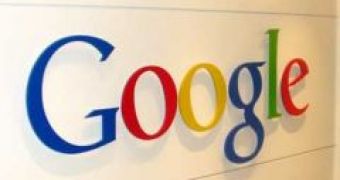Google is pointing the finger at Microsoft, accusing its proprietary browser, Internet Explorer, of the fact that it is keeping its own breed of open source browser dubbed Chrome uncompetitive and that it is killing innovation. The Mountain View search giant is blaming the bundling of Internet Explorer with the Windows platform as the source of what it referred to as a largely uncompetitive browser market, a scenario in which innovation is being held back for end users. Claiming that not only Chrome but also all browsers on the market are affected, Google has asked the European Union Antitrust Commission to become a third party in the regulators' proceeding against Microsoft for IE.
“Browsers are critical to the Internet – they enable us to surf the web, search, chat, email, watch videos, or connect to our social networks. And because they are so central to every user's web experience, browsers are crucial to innovation online,” revealed Sundar Pichai, vice president, Product Management.
At the end of 2008 Google, which many regard as the backbone of the Internet, became a player on the browser market by launching Chrome, an open source browser based on WebKit. Now with version 2.0 in the works, Chrome has grabbed a little over 1% market share since launch according to Net Applications, while IE accounts for a usage share of 67.5%, with Firefox at 21.5%, and Opera at 0.7%. It was an antitrust complaint filed by Opera in 2008 that led to EU producing a statement of objections in January 2009, in which the Redmond company was accused of infringing the EC Treaty rules on abuse of a dominant position with the IE and Windows bundle.
“This is because Internet Explorer is tied to Microsoft's dominant computer operating system, giving it an unfair advantage over other browsers. Compare this to the mobile market, where Microsoft cannot tie Internet Explorer to a dominant operating system, and its browser therefore has a much lower usage. The value of competition for users (even in the limited form we see today) is clear: tabbed browsing, faster downloads, private browsing features, and more. Even greater competition will drive more innovation within browsers themselves – as well as in web design, enabling sites to load faster and offer new kinds of interactive tools and applications,” Pichai added.
As a direct consequence, Google now wants to join Mozilla as third parties to the complaint filed by Opera. Pichai indicated that the Mountain View-search giant felt that it could deliver a contribution to the conflict. “We learned a lot from launching our own Google Chrome browser last year and are hoping that Google's perspective will be useful as the European Commission evaluates remedies to improve the user experience and offer consumers real choices. Of course creating a remedy that helps solve one problem without creating other unintended consequences isn't easy – but the more voices there are in the conversation the greater the chances of success,” Pichai said.
Internet Explorer 8 (IE8) Release Candidate 1 (RC1) is available for download here.
Google Chrome 2.0 is available for download here.
Opera 10.0 Alpha for Windows is available for download here.
Opera 10.0 Alpha for Linux is available for download here.
Opera 10.0 Alpha for Mac OS X is available for download here.
Firefox 3.1 Beta 2 for Windows is available here.
Firefox 3.1 Beta 2 for Linux is available here.
Firefox 3.1 Beta 2 for Mac OS X is available here.

 14 DAY TRIAL //
14 DAY TRIAL //